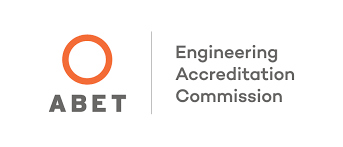Accreditation
The Bachelor of Science degree in mining engineering at Virginia Tech is accredited by the Engineering Accreditation Commission of ABET, under the General Criteria and the Mining and Similarly Named Engineering Program Criteria.

Program educational objectives
Alumni of this program, within a few years of graduation, are expected to develop:
- the intellectual ability to critically assess and tackle any engineering problem they may encounter;
- the communication skills to communicate technical information to a variety of audiences, including technically-trained supervisors and subordinates as well as non-technical members of the work force and the general public;
- the leadership and team building skills to lead projects and function as entry-level managers as well as work productively as members of a team;
- an understanding of the practical aspects of the mining industry and an appreciation for mining as a business; and
- an awareness of societal issues and how these issues affect their roles as future professional engineers working for the general benefit of society.
Student outcomes
Graduates of the bachelor's degree program in mining engineering, are expected to possess:
- an ability to identify, formulate, and solve complex engineering problems by applying principles of engineering, science, and mathematics;
- an ability to apply engineering design to produce solutions that meet specified needs with consideration of public health, safety, and welfare, as well as global, cultural, social, environmental, and economic factors;
- an ability to communicate effectively with a range of audiences;
- an ability to recognize ethical and professional responsibilities in engineering situations and make informed judgments, which must consider the impact of engineering solutions in global, economic, environmental, and societal contexts;
- an ability to function effectively on a team whose members together provide leadership, create a collaborative environment, establish goals, plan tasks, and meet objectives;
- an ability to develop and conduct appropriate experimentation, analyze and interpret data, and use engineering judgment to draw conclusions;
- an ability to acquire and apply new knowledge as needed, using appropriate learning strategies;
- the experience acquired through internships or cooperative education to apply engineering management and design in the industrial context.
Accreditation
The Bachelor of Science program in mining engineering is accredited by the Engineering Accreditation Commission of ABET, under the General Criteria and the Mining and Similarly Named Engineering Program Criteria. Learn more about the department's accreditation, mission, and educational objectives.



